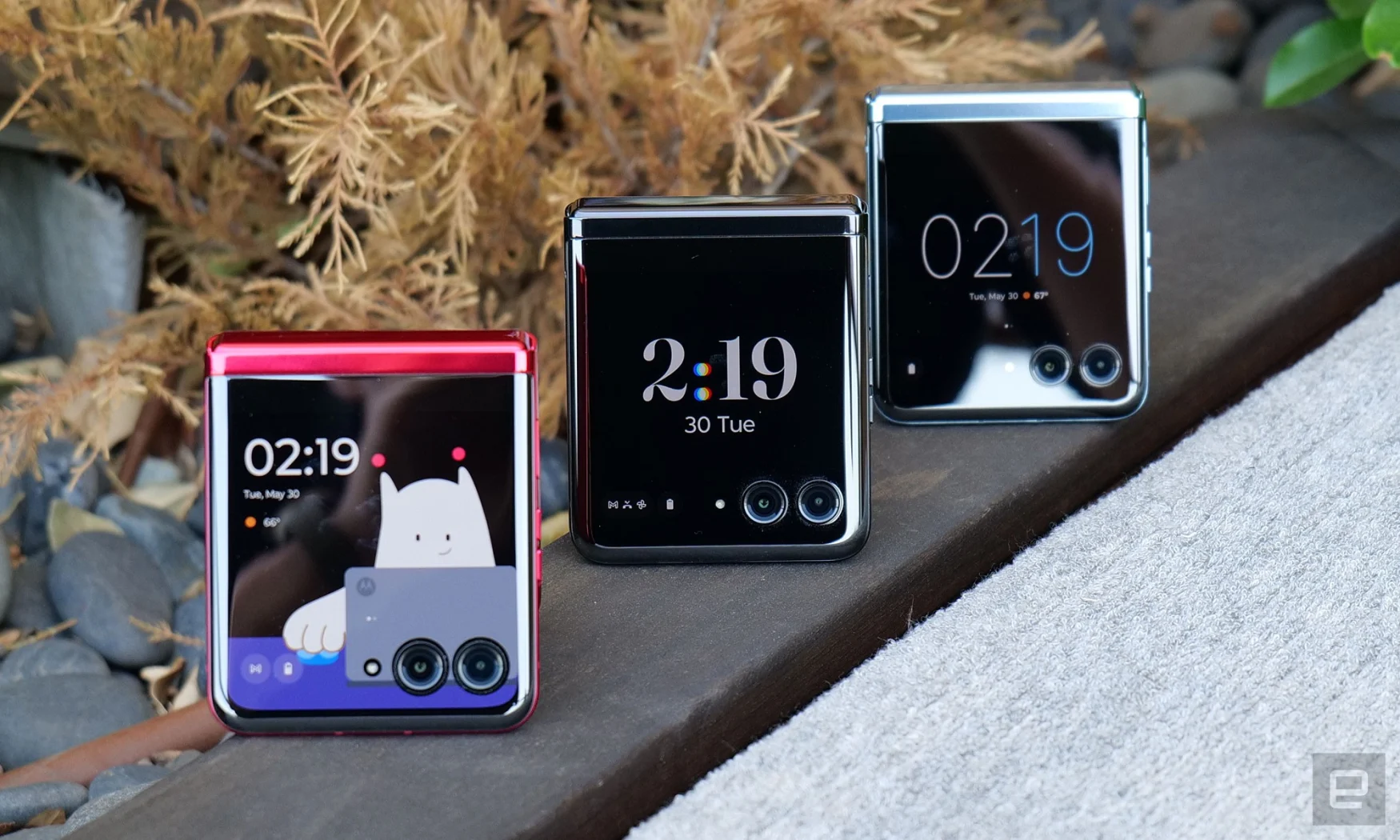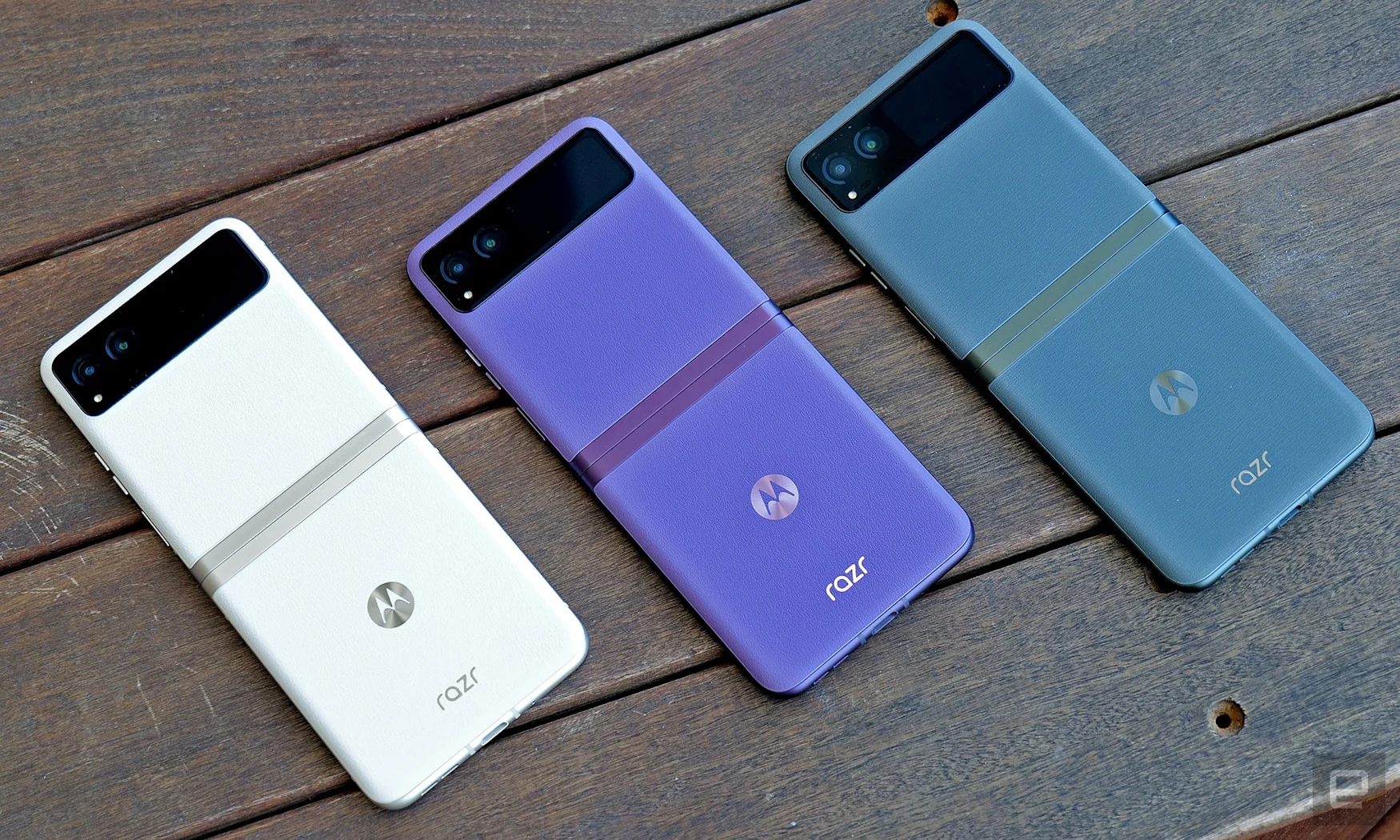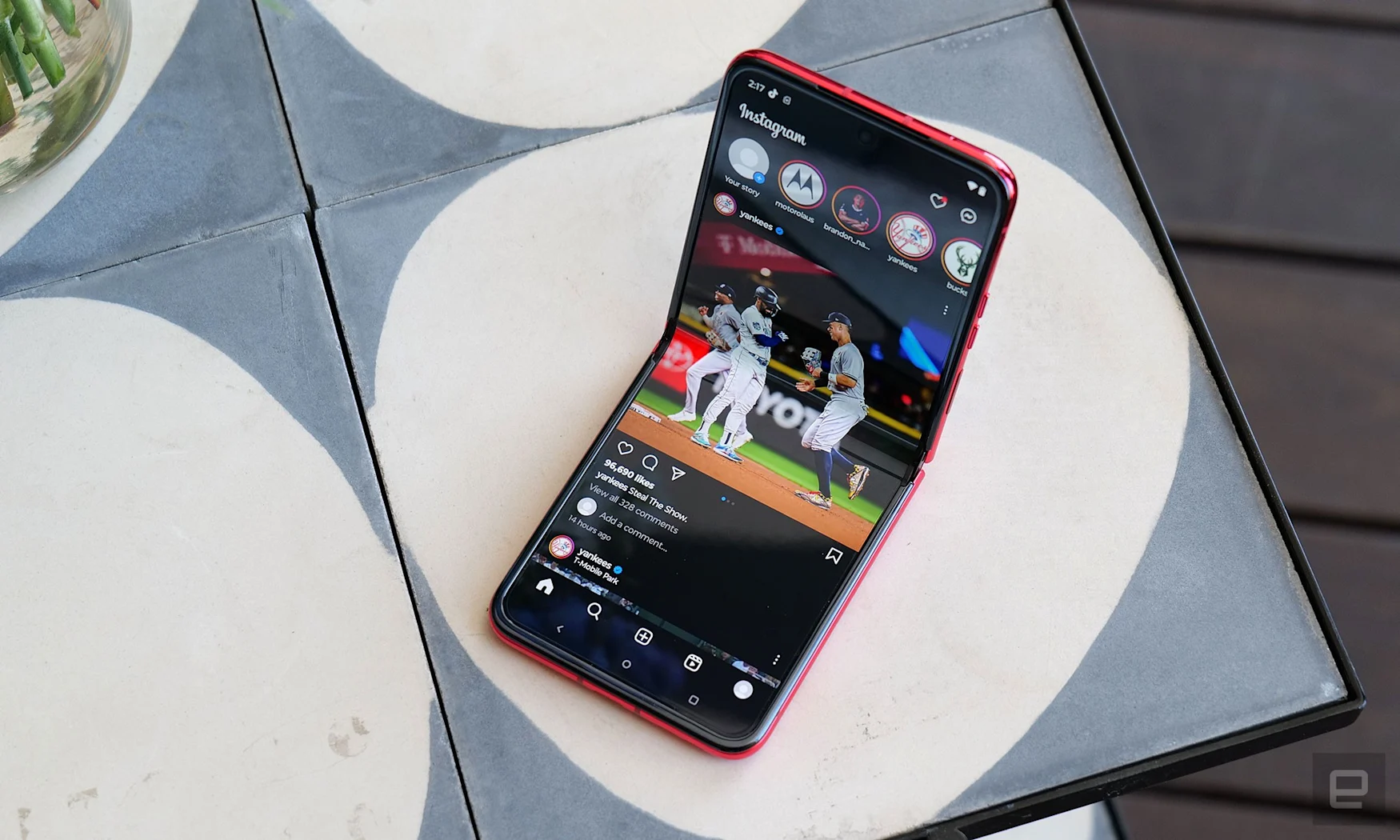[ad_1]
When Motorola rebooted the legendary Razr line as a foldable phone in 2019, it felt like such a natural evolution. Unfortunately, we haven’t gotten a ton of updates since then aside from a mildly-upgraded 5G variant in 2020 and a China-only version late last year. But that changes now because today Motorola is announcing not one but two new members of the Razr family with the Razr and Razr+. And after getting a chance to check both of them out, I feel like each one has some interesting features you don’t get on competing devices.
In terms of general design, both the Razr and Razr+ share the same chassis and internal flexible display. The main difference is that the Razr+ sports a 3.6-inch 144Hz pOLED screen on its front – which Motorola claims is the largest exterior display on any foldable available today – while the standard Razr has a much smaller 1.5-inch external panel. The Razr+ also boasts faster performance thanks to a Snapdragon 8+ Gen 1 chip that helps the phone achieve a 165Hz refresh rate on its main screen, whereas the Razr uses a Snapdragon 7 Gen 1 chip that can only support 144Hz. Both also feature 30-watt wired charging and wireless Qi charging, though the latter is capped to a slow 5 watts.
Both feature a side-mounted fingerprint sensor, 8GB of RAM and up to 128GB of storage (or 256GB on the Razr+). They have the same 32-megapixel hole-punch selfie cameras on the interior, with the Razr+ packing a 12-MP main rear camera and a 13-MP ultra-wide/macro setup, while the regular Razr’s sensors are 64-MP and 8-MP respectively. And as a nod towards everyday durability, both Razrs do have some form of water resistance, though their IP52 ratings aren’t good for protecting against more than a weak splash or light rain.
With that out of the way, I’m going to focus on the Razr+ because it’s the more interesting of the two. Unlike the previous foldable Razrs from 2019 and 2020, the new model doesn’t sport the line’s iconic chin, which is a bit sad. But in exchange, you get a much bigger screen that feels more usable when compared to rivals like Samsung’s Z Flip 4. And the way the display wraps around the phone’s two main cameras looks better too.

Photo by Sam Rutherford/Engadget
On top of that, Motorola optimized the exterior display so you can access your most important apps, notifications and more without things feeling too cramped. Heck, there are even some simple games that have been tweaked specifically for the outside display. That means you can do stuff like look at a map, respond to texts or check your calendar without having to open the phone. This gives you some of the adaptability of a big foldable like the Z Fold 4 but in a more compact device.
Then when you open up the Razr+, you’re greeted by a beautiful 6.9-inch flexible OLED display with great brightness (up to 1,100 nits). And while there technically is a crease that you can feel if you run your fingers over the middle of the screen, visually, it’s almost undetectable. It’s a really nice acheivement and when you combine that with a chassis that folds completely flat and measures just 15.1mm when closed, you start to really appreciate the many subtle design tweaks Moto made to get here. You even get Gorilla Glass Victus in the front and back for a bit of extra toughness (except for on the Viva Magenta model which gets a vegan leather material in the rear).
Gallery: 2023 Moto Razr and Razr+ hands-on photos | 11 Photos
Gallery: 2023 Moto Razr and Razr+ hands-on photos | 11 Photos
In a lot of ways, the Razr+’s body feels like a more polished and functional take on the Z Flip 4’s template. The outside screen is bigger and easier to use while the flexible display on the inside doesn’t suffer from any distracting furrows or wrinkles. Moto even included a slightly larger 3,800 mAh battery, which is great because longevity has never been a strong suit of flip-style foldable phones. And thanks to a new hinge that can hold its position when half open, Moto was even able to include a number of nifty camera modes so you can hold the phone like an old-school camcorder, use the exterior screen to give your subjects a preview of your shot or trigger the new Photobooth mode by holding your hand up.
As for the standard Razr, the benefit of having a smaller exterior screen is that it leaves room for a larger sensor on its main camera in addition to a slightly bigger 4,200 mAh battery. And while you don’t get Gorilla Glass Victus on its exterior, subbing that out for vegan leather seems like a great choice both for style and durability.

Photo by Sam Rutherford/Engadget
But my favorite thing about the 2023 Razr family is that by expanding the line into two devices, it feels like Motorola is making foldable phones a lot more approachable. At $1,000, the Razr+ is almost bridging the gap between modern flip phones and bigger foldable devices and could be ideal for people who want a compact device that doesn’t sacrifice much in terms of usability.
My one concern at this point is Moto’s timing. Currently, the Razr+ is slated to be available for pre-order starting on June 16th before official sales begin on June 23rd. That’s close to when Samsung typically announces new foldables in the late summer, which means the Razr+ may only be on the market for a month or two before fresh opposition (likely with faster silicon) appears.

Photo by Sam Rutherford/Engadget
Meanwhile, for those curious about foldable handsets, there’s the standard Razr. Sure, it’s got a slower chip and its exterior screen isn’t meant for much more than checking notifications. The one hang-up is that at least for now, there’s no official info about an expected price or release date. But according to Motorola executives, it will also be “meaningfully cheaper” than the Razr+, which could make it a great entry-level foldable – especially if Moto can get the price down around $750 or less.
But if you’re like me and you’ve been waiting for more foldable phones to hit shelves, between Moto’s two new Razrs and Google’s upcoming Pixel Fold, this summer has gotten a lot more exciting real quick.
[ad_2]
Source link
